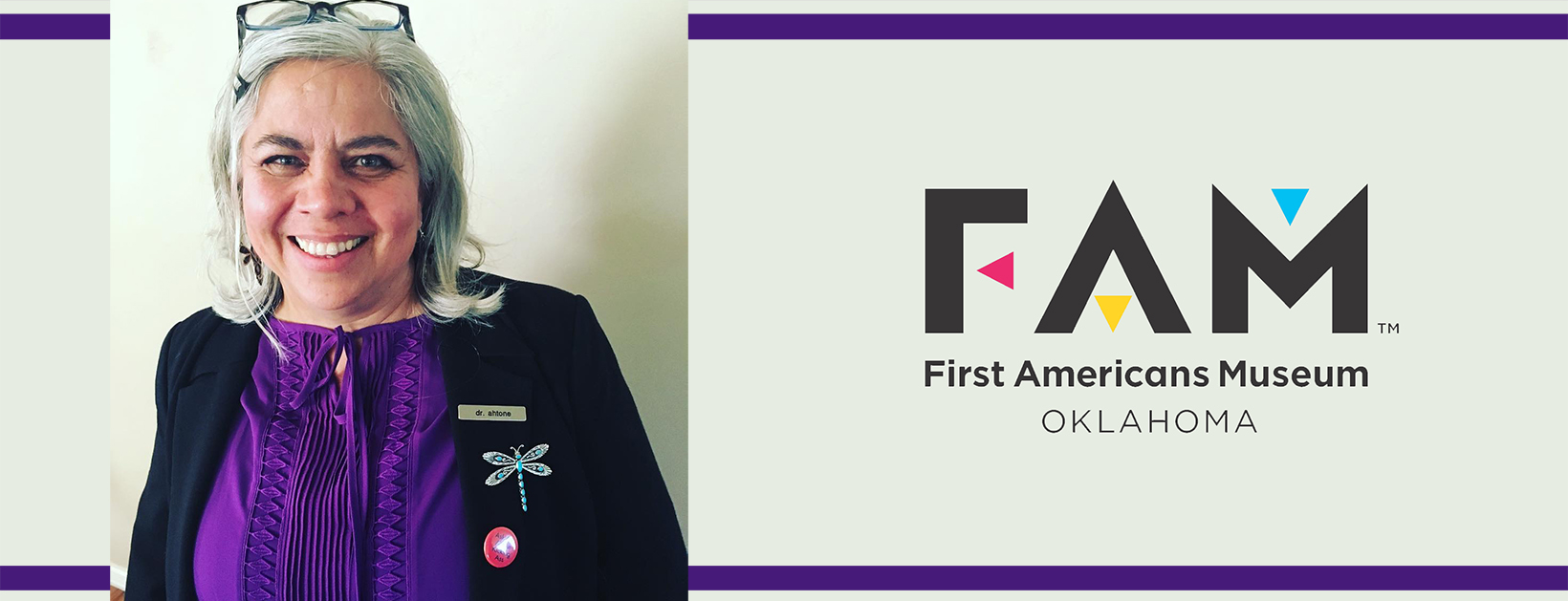Wednesday Lecture Feb. 5: Dr. heather ahtone (Choctaw/Chickasaw) on Decolonizing the Museum
dr. heather ahtone (Choctaw/Chickasaw)
Decolonizing the Museum:
an Indigenous Curator’s Thoughts
Wednesday, February 5 in G40 WJB, 4 pm
Free & open to the public
Join us on Wednesday, February 5 for the first lecture of the year in the Vincent and Agatha Thursby Distinguished Scholars Lecture Series. Dr. heather ahtone, senior curator at the First Americans Museum in Oklahoma City, will present “Decolonizing the Museum: An Indigenous Curator’s Thoughts.” Considering recent discourse about decolonizing institutions and Indigenizing spaces, ahtone will use the First Americans Museum in Oklahoma City as a model for discussing how changes can be implemented in a nationally significant institution. The First Americans Museum is set to open in May 2021, speaking to the collective history of the 39 tribal nations in Oklahoma. Their history is one of resilience and survivance – an American story about the effects of Colonialism, displacement, and capitalism on Indigenous peoples. As an experienced curator whose own tribe is now settled in Oklahoma, Dr. ahtone will discuss the emotional and intellectual challenges that she and her team have faced in preparing the inaugural exhibits.
The primary focus of heather ahtone’s research and writing has been to examine the intersection between Indigenous cultural knowledge and contemporary art. Dr. ahtone has worked at the Institute of American Indian Arts Museum (now MoCNA), the Southwestern Association of Indian Arts (Santa Fe, New Mexico), on contract with Ralph Appelbaum Associates (New York), and in several positions at the University of Oklahoma, where most recently she served as the curator of Native American art at OU’s Fred Jones Jr. Museum of Art for over six years. Working in the Native arts community since 1993, she has curated numerous exhibits, published articles on her research, and continues to seek opportunities to broaden discourse on global contemporary Indigenous arts. She is a citizen of the Chickasaw Nation and has strong family ties to the Choctaw and Kiowa communities.
